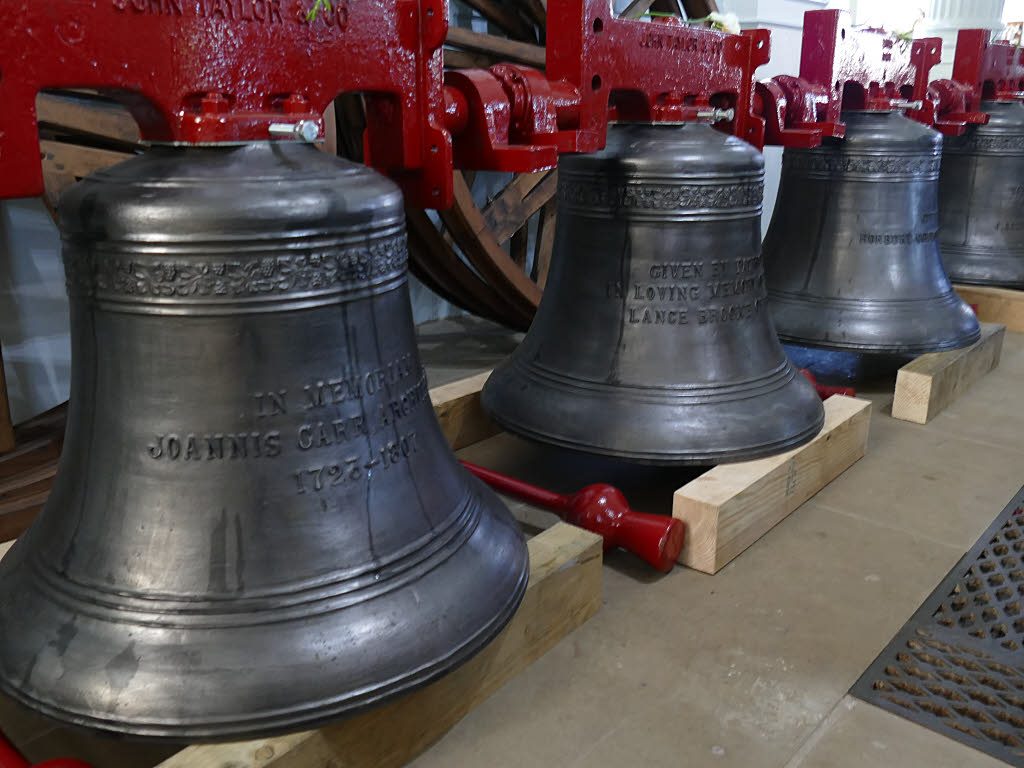
Image © Stephen Craven
I’ve been away from the computer for a few days so now catching up. My choice of hymn for 29th December, as we approach the year end, is ‘Ring out the bells’ by Michael Perry. The tune ‘Yanworth’ was familiar (but I can’t recall to what words) but John used a different one.
Ringing bells to celebrate the end of one year and the beginning of the next is an ancient English tradition, and probably in other countries too, though only the English have developed the complex art of change-ringing on church bells. In popular culture it has now been replaced by setting off fireworks. I can hear them outside as I write this on New Year’s Eve, but some churches do see in the new year with bells. The hymn looks at the symbolism they bring with them, in four verses.
First is to ‘let the people know that God is worshipped in the church below’ and that prayer is being offered. This was the first and most important role of the bells, to summon to worship those who could attend, and to remind those who could not to offer up their own prayers instead, as in the French tradition of sounding the Angelus at midday.
The second symbol is ‘to let the people hear, let hearts be open now and faith draw near’. The joyous sound of bells is intended to lift our hearts, wherever we are. The third is to ‘let the people sing through changing seasons to our changeless King’. While one cannot sensibly ‘sing along’ to change ringing (though one could to a carillon), the correct response to having one’s heart lifted is to praise God, whether aloud or in silence.
Lastly, the bells signify ‘that glorious day when death shall die and sin be done away’. A single tenor (deep note) bell is usually tolled to indicate a funeral, the passing of a human life. But bells have also been rung, as may as possible, to signify invasion or other national calamity. Together, they form a call to action. Like the ‘final trumpet’ they can be a reminder that Christ will come again, and we need to prepare ourselves for that eventuality, which for the believer is not a threat but a promise of eternal life. In anticipation of that final day, we are invited in the venerable New Year tradition to resolve, with God’s help, to live a more Christ-like life.